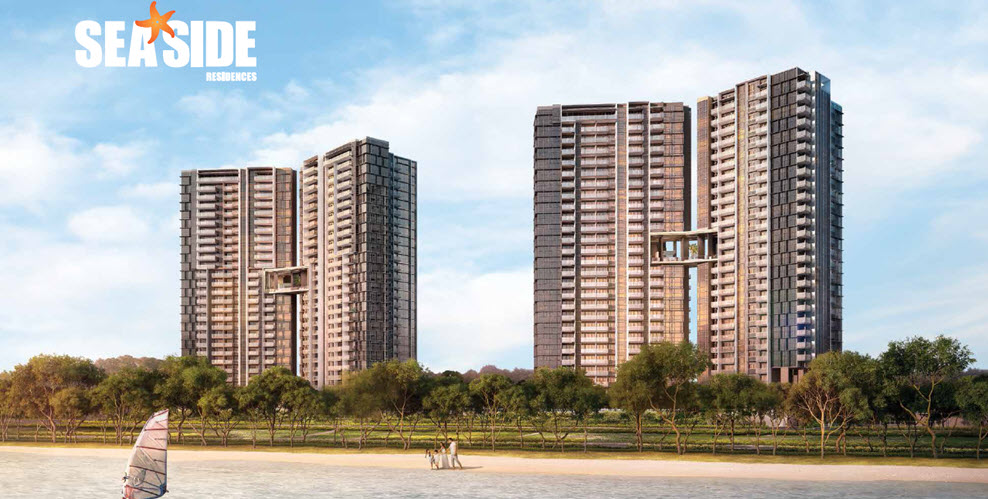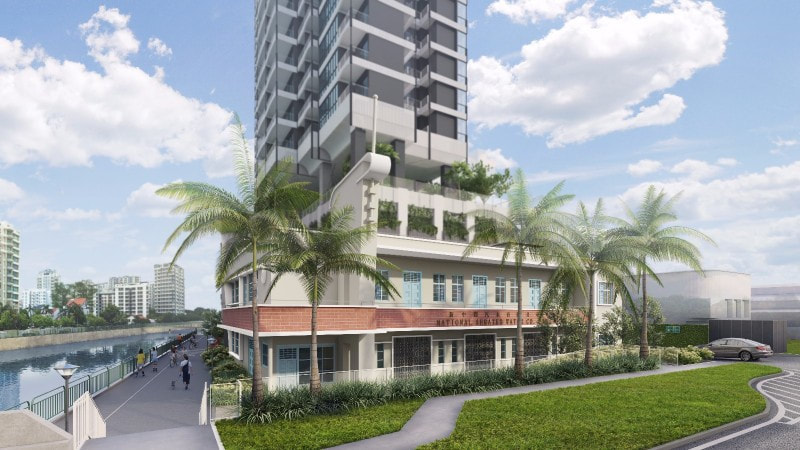Fitch Home prices in some smaller Chinese cities could fall next year as the world's second-largest economy slows, Fitch Ratings said, while adding that the government is expected to step in to stem any precipitous decline. Nationwide growth in China's property prices has moderated this year in response to measures to curb speculation. Sales volumes may fall up to 10 per cent, following low-single-digit gains in 2018, with declines likely to be the strongest in lower-tier cities, it said. Smaller cities will be most affected by the scaling back of monetised resettlement of shanty-town residents, Fitch said. But the rating agency said the downturn is likely to be muted, and the government has considerable scope to ease policies to support the market if required.
Some claim fingers burnt in Iskandar buy-and-leaseback scheme
A group of 116 people - mostly Singaporeans - who bought serviced apartments in a waterfront development at Johor's Puteri Harbour are claiming that they have had their fingers burnt in a buyand-leaseback scheme. They are accusing a company linked to the developer of giving "unreasonably and inconceivably negligible" rental returns after the first two years of guaranteed returns in a 10-year contract. This began in March 2015 and they got at least five per cent a year. But when the guarantee period expired in February 2017, the returns plunged. The 204-unit development, sited in the massive Iskandar township and just 10 minutes from the first Legoland theme park in Asia, is called Somerset Puteri Harbour as it is managed and operated by The Ascott, which uses the brand name Somerset.
Singaporeans seek to get the best out of their JB homes
An oversupply of high-end condos in Iskandar Malaysia has been pushing rent lower, said industry experts. More owners are turning to short-term leasing because of the lower rental yield and challenges in finding long-term tenants. Airbnb is an alternative solution according to an analyst. It broadens the demand base because it's on an international website. Rental demand at Iskandar has not been as strong as projected. And now, with the Malaysian government pushing for more affordable homes for locals, chances are slim for those who want to make a profit from selling their units.
Indonesia plans tax revisions to prop up sluggish property sector
Indonesia plans to cut taxes on luxury properties and revise other tax rules in a bid to support the real estate industry and attract investment in South-east Asia's biggest economy, Finance Minister Sri Mulyani Indrawati said. The threshold for a luxury tax of 20 per cent applied to houses and apartments would be raised to at least 30 billion rupiah (S$2.8 million) from 20 billion rupiah, she said in comments published on the cabinet secretary's website late on Wednesday. Sales of luxury property will also be subject to a lower tax of 1 per cent of the selling price, against 5 per cent now.
Anyone fearing a Brexit-induced house-market crash in the UK would do well to remember that the country isn't even close to keeping up with demand for new homes. Figures show that construction continues to lag behind the government's targets, suggesting that a failure to meet demand will buoy the market for some time to come. Limited access to land, increasing construction costs and a slow planning process mean that homebuilders have failed to deliver enough properties for at least a decade. The problem is especially acute in London, where net additions fell about 20 per cent from a year ago to 31,723 units, less than half the 65,000 units pledged by Mayor Sadiq Khan in his effort to convince voters he could solve the city's chronic housing shortage.
UK housing woes deepen as asking prices fall
Property asking prices in the UK fell from a year earlier for the first time since 2011, led by declines in London and among the most expensive properties. Asking prices slipped 0.2 per cent to £302,023 (S$532,000). Prices were 1.7 per cent lower compared with October, the biggest drop for the month since 2012. The property market in Britain is weakening after a three-decade boom in which price growth vastly outstripped wage gains. The uncertainty around the outlook for the UK's divorce from the European Union is also making buyers more cautious and prompting sellers to be less ambitious with asking prices.
London's stockpile of unsold homes jumps to record high
London's stock of completed but unsold homes has surged by almost half this year as Brexit uncertainty and affordability issues dog the housing market. The number in the capital jumped to 2,374 units as of Sept 30, the most on record and up from 1,595 at the end of 2017, according to data compiled. The borough with the biggest stockpile is Wandsworth, an area that borders the River Thames, followed by Croydon, an outer borough in the south of the city. Britain's housing market is slowing after a multi-year boom as the UK's impending divorce from the European Union weighs on sentiment and prices remain out of reach for many potential buyers.
Australia housing will muddle through downturn
Australia's property downturn will weigh on economic growth, with prices set to keep falling through 2019. Nationwide housing prices will fall between 10 per cent to 15 per cent from recent peaks, with "slightly larger" declines in Sydney and Melbourne. While that would be the largest decline in recent times, it would just reverse the overvaluation of recent years. The decline is already well under way, with Sydney prices down 7.4 per cent in October from a year earlier, and Melbourne off 4.7 per cent. Nationally, house prices dropped 3.5 per cent last month from a year earlier, according to latest data.
US properties in places like Denver, Phoenix, Philadelphia and the suburbs of Atlanta have all drawn foreign investment this year as buyers look for growth outside the biggest US metro areas. The most popular second-tier markets for foreign capital this year include Dallas, California's Inland Empire and Philadelphia.
US existing-home sales rise for first time in seven months
Sales of previously owned US homes rose in October for the first time in seven months, suggesting that demand is stabilising at a lower level as available properties become less scarce. Contract closings increased from the prior month to an annual rate of 5.22 million, the National Association of Realtors (NAR) said. That compared with economists' projections for sales of 5.2 million. The median sales price rose 3.8 per cent from a year earlier, while the inventory of available homes expanded 2.8 per cent, the third straight increase. Even with the monthly increase, the market remains relatively soft, as sales were down 5.1 per cent from a year earlier, the biggest drop since 2014.
US housing starts rise, but underlying trend weak
US homebuilding rose in October amid a rebound in multi-family housing projects, but construction of single-family homes fell for a second straight month, suggesting the housing market remained mired in weakness as mortgage rates march higher. Other details of the report published by the Commerce Department on Tuesday were also soft. Building permits declined last month and homebuilding completions were the fewest in a year. Housing starts increased 1.5 per cent to a seasonally adjusted annual rate of 1.228 million units last month. In addition to rising borrowing costs, the housing market is also being squeezed by land and labour shortages, which have led to tight inventories and more expensive homes. Many workers are being priced out of the market as wage growth has lagged.
Canada's housing boom shifting to rugged north
Forget Vancouver. British Columbia's housing boom is set to shift to the province's rugged north as Royal Dutch Shell's US$31 billion liquefied natural gas project sparks an economic boom in the remote region. British Columbia's North Coast - a sparsely populated region usually synonymous with untamed wilderness, black bears and glacial fjords - is set for a turnaround as Shell and its four partners ramp up activity on Canada's largest infrastructure project ever. Residential home prices in the North Coast are set to surge faster than any other region in the province through 2020 as the project in Kitimat prepares to employ as many as 7,500 people at its peak. In contrast, prices in Vancouver's Lower Mainland area - once one of the hottest housing markets in North America - will fall, keeping the overall provincial median price flat.








 RSS Feed
RSS Feed
